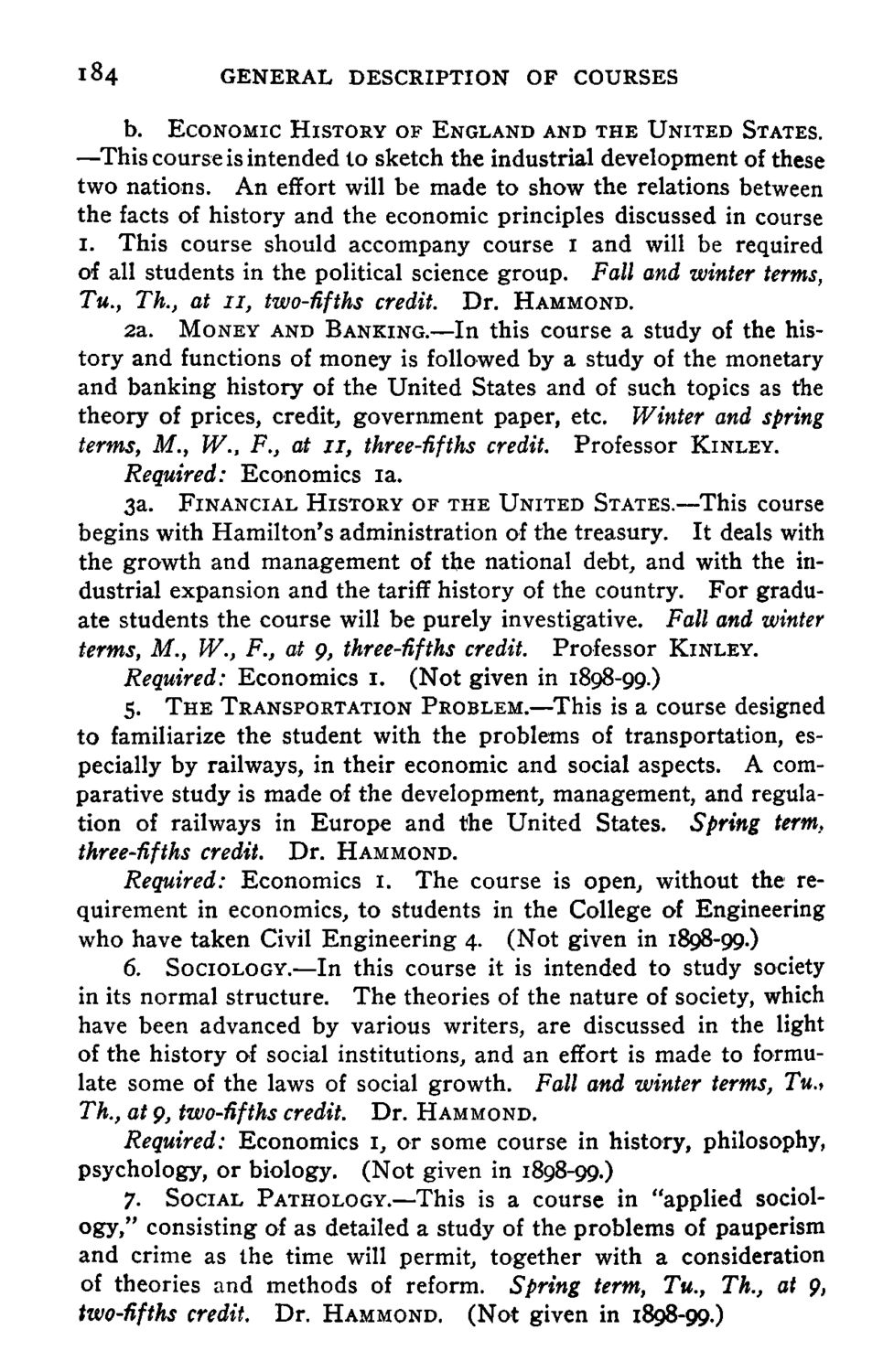Caption: Course Catalog - 1897-1898
This is a reduced-resolution page image for fast online browsing.

EXTRACTED TEXT FROM PAGE:
184 b. GENERAL DESCRIPTION OF COURSES ECONOMIC HISTORY OF ENGLAND AND THE UNITED STATES. —This course is intended to sketch the industrial development of these two nations. An effort will be made to show the relations between the facts of history and the economic principles discussed in course 1. This course should accompany course I and will be required of all students in the political science group. Fall and winter terms, Tu., Th., at 11, two-fifths credit. Dr. HAMMOND. 2a. MONEY AND BANKING.—In this course a study of the his- tory and functions of money is followed by a study of the monetary and banking history of the United States and of such topics as the theory of prices, credit, government paper, etc. Winter and spring terms, M., W., F., at 11, three-fifths credit. Professor KINLEY. Required: Economics ia. 3a. FINANCIAL HISTORY OF THE UNITED STATES.—This course begins with Hamilton's administration of the treasury. It deals with the growth and management of the national debt, and with the industrial expansion and the tariff history of the country. For graduate students the course will be purely investigative. Fall and winter terms, M., W., F., at 9, three-fifths credit. Professor KINLEY. Required: Economics 1. (Not given in 1898-99.) 5. T H E TRANSPORTATION PROBLEM.—This is a course designed to familiarize the student with the problems of transportation, especially by railways, in their economic and social aspects. A comparative study is made of the development, management, and regulation of railways in Europe and the United States. Spring term, three-fifths credit. Dr. HAMMOND. Required: Economics 1. The course is open, without the requirement in economics, to students in the College of Engineering who have taken Civil Engineering 4. (Not given in 1898-99.) 6. SOCIOLOGY.—In this course it is intended to study society in its normal structure. The theories of the nature of society, which have been advanced by various writers, are discussed in the light of the history of social institutions, and an effort is made to formulate some of the laws of social growth. Fall and winter terms, Tu., Th., at 9, two-fifths credit. Dr. HAMMOND. Required: Economics 1, or some course in history, philosophy, psychology, or biology. (Not given in 1898-99.) 7. SOCIAL PATHOLOGY.—This is a course in "applied sociol- ogy." consisting of as detailed a study of the problems of pauperism and crime as the time will permit, together with a consideration of theories and methods of reform. Spring term, Tu., Th., at 9, two-fifths credit. Dr. HAMMOND. (Not given in 1898-99.)
|